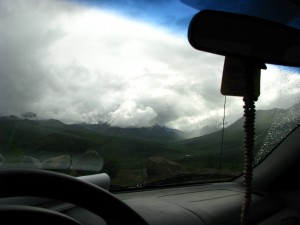This week, I am focused on an idea poised by Daniel Coleman in White Civility: The Literary Project of English Canada and how it relates to the Immigration Act of 1910.
“What was isn’t, what will be hasn’t, and what is what is”
Words quietly uttered at fireside in a small farmhouse nestle in a hill in Prince Edward Island after a day of carrying debarked and aged tree trunks through knee-deep wetlands to build a log cabin. A good friend said these simple words, often they resonate with me when I consider history and relativism. Indeed, Canada is not how it was but nothing ever “was” – existence is flux. This lends a bias to my eye when I read about colonialism or Nationalism, so please keep that in mind.
Canada is often spoken of as a young country, or nation, and while ribbon cutting may happen overnight we know that it comes only after a long and perilous road. Nation building is a lengthy and complex continuity of events that culminate in ideas and ideology. Ideas put in practice through Acts and laws. I looked at several Canadian Acts, and was particular taken by the Immigration act of 1910. I have always imagined Canada as a vast area, peopled by nomads from diverse backgrounds. The immigration act strikes me as particularly interesting, laws enacted to filter and discriminate upon who may have membership in newly founded Canada.
The Constitution Act came about in 1867, uniting Nova Scotia, New Brunswick, and the Province of Canada (later to be Ontario and Quebec) formed as a dominion, vying for similar position and autonomy as Scotland or Ireland had within Great Britain. 1867 – Indeed Canada is young. When I hold my Grandmothers hand (who is turning 92) I am touching someone who touched someone who was alive when Canada was not a country at all. Other provinces soon joined the dominion and Canada became an awkward semi self-managing entity. However, a unified nation was not formed overnight, one could even argue it still has not. In 1914, four years after the Immigration act (I’ll get there shortly, hang in there) Canada was automatically brought into the First World War by colonial ties to England. On shaky legs with a held hand Canada has emerged from colonization, treaties, and reserves into a “nation”. A big part of that was creating an identity, what was it to be Canadian? What is it now? What will it be?
The Immigration Act.
Reading this act with regard to present Canadian Identity is rather shocking. Basically, Canadian citizens were defined as persons born in Canada, British subjects residing in Canada, or persons naturalized under the laws of Canada.
In fact, immigrants are further designated as all persons who are: (I) non-Canadian, (II) non-diplomatic, (III) relations of British military, (IV) tourists/travellers, and (V) students. Canada was creating an “us” and “them” dichotomy closely tied to colonial British roots. The act then discriminated against persons with mental problems, criminal records, religious and ethnic groups, and the impoverished and destitute. These persons were viewed as being unnecessary burdens on a fragile country. Definitions in the immigration act play strongly into Coleman’s argument about how Canadian nation building has relied on archetypes of “White civility”. However, we know that the people in North America came from diverse backgrounds. The administration may have been British (after taking over from French rule) but there was a targeted campaign to recruit other cultures to immigrate to Canada as well.
“I think the stalwart peasant in a sheepskin coat, born on the soil, whose forefathers have been farmers for ten generations, with a stout wife and a half-dozen children, is good quality” – Clifford Sifton (Belanger, 2006)
The sheepskin coat was a reference to Eastern European and Nordic farmers. I highly recommend you read this story where I stumbled upon this quote and further explains it.
Coleman describe four archetypes: the Loyalist brother, the Scottish orphan, the muscular Christian, and the maturing colonial son. Each of these represent moral imperatives or desirable attributes or ways to act “Canadian”. In light of Canadian history rooted in Colonial Britain it is little surprise that these archetypes dominate descriptions of a “Canadian”. Reminiscing on heritage moments – not all are about white men but they are the overwhelming majority. Or, perhaps, check this list of quotes (Belanger, 2006) from Canadian officials that can easily be categorized as Coleman’s white civility, if not supremacy.
Personally, reading Coleman struck a gut wrenching cord of recognition. Four years ago I travelled from the Maritimes to the west coast, then North to the Yukon and Alaska. I was trying to get a better grasp of Canada as a place, to explore, and frankly – play outside. At this point in my life I was no stranger to travel, but was still astonished at (and revelled in) the incredible diversity and common ground held by people all over the country. In primary school I studied French in the St. Mary’s First Nation reserve which was both an informative experience and also played into a national ideology. First Nation. Anglo. French. No mention of the plethora of other cultural groups that forged Canada as a country.
Still, I was weaned as an orphan Scot – both sides of my family are descendent from Scots (with mixed heritage from Whales, England, and First Nations). My ancestors were people who had been displaced and exiled from their homeland, with family and clan ties shattered. My maternal grandfather is the prototypical orphan Scot if there ever was one, and a hard working protestant too. My paternal grandfather was a courier de bois in Northern Quebec. It is not that I think any other culture is “less Canadian” but I have always associated a certain tenacity, ruggedness, acceptance of others, mysticism, and altruistism to a Canadian identity. Have I too been indoctrinated by a contrived story to become a thrall for a national agenda? And whose agenda is that exactly?
Canada was not, and has not become the mask of tolerance, acceptance, shelter, and aid that it puts forth to the international stage. Certainly, the 1910 Immigration Act reflects the aforementioned quotes above and I must concur with much of what Coleman put forth. I add that perhaps the archetypal “Canadian” was white civility because the Scotch-Irish already had experienced dealing with English rule and making their voices heard. When British rule succeeded they (and British loyalists) leapt to the stage – but they were also positioned to do so. It was of course, in England’s best interest to have a self-governing but closely allied Canada. In this process the voices of other cultural histories have been silenced.
We have all been told stories about what this place is and who we are. They may or may not be true, but I will argue that what was isn’t, what will be hasn’t, and what is what is. We should know our history and learn from it, but not lament it. For me, a Canadian isn’t someone who was born in a particular place or looks a certain way, but someone who can accept and embrace our differences and strive to build a safe and peaceful community to live in. And the Canada I want to live in certainly is not a place that does not provide prenatal care to pregnant refugees or insulin to children. Frankly, we can – and should – do better.
Refs:
Canada. The Consitution Act of 19 Mar 1867. Web. 27 Feb 2014. Permalink <http://laws-lois.justice.gc.ca/eng/const/page-1.html>
Canada. The Immigration Act. Ottawa : C.H. Parmelee. Web. 27 Feb 2014. Permalink <http://eco.canadiana.ca/view/oocihm.9_07184>
Bélanger, Claude. “Canadian Opinions of Immigrants (pre 1945 period)” Quebec History: Marianopolis College. 2006. Web. 27 Feb 2014.
“Legal Challenge to Refugee Health Care Cuts Begin Today” Canadian Association of Refugee Lawyers. 17 Dec 2013. Web. 27 Feb 2014.



🙂
Hi there Duncan,
In my own 3:1 blog post, I also picked the Immigration Act of 1910 as my focal piece of legislature. I really enjoyed reading your post particularly because you took a completely different approach compared to my own; while I wrote largely about the legal implications of the language used in the act itself, I felt that you brought a very refreshing point of view with identity in mind – supported by your personal adventure. Thank you for that.
I also liked the list you included of quotes from Canadian political figures regarding immigration. It’s particularly relevant today taking into the context of the PQ proposed Quebec Secular Charter (which arguably an election is currently being fought over) and the ethnic vote comment made by past PQ premier Jacques Parizeau in 1995. Do you think we could possibly be seeing a resurgence of those attitudes?
Very nice comment Edward! I am about to run to a seminar so this is short and hopefully sweet. That is a fascinating point you brought up with that quote from Jacques Parlzeau. I’m not sure if it is a resurgance or a continuance, but I think even in modern Europe ethnic and xenophobic tendancies seem to be on the rise.
(I haven’t figured out how to hyperlink in a comment yet so see below =))
http://www.businessweek.com/articles/2014-02-13/europes-anti-immigrant-parties-cheer-a-swiss-vote